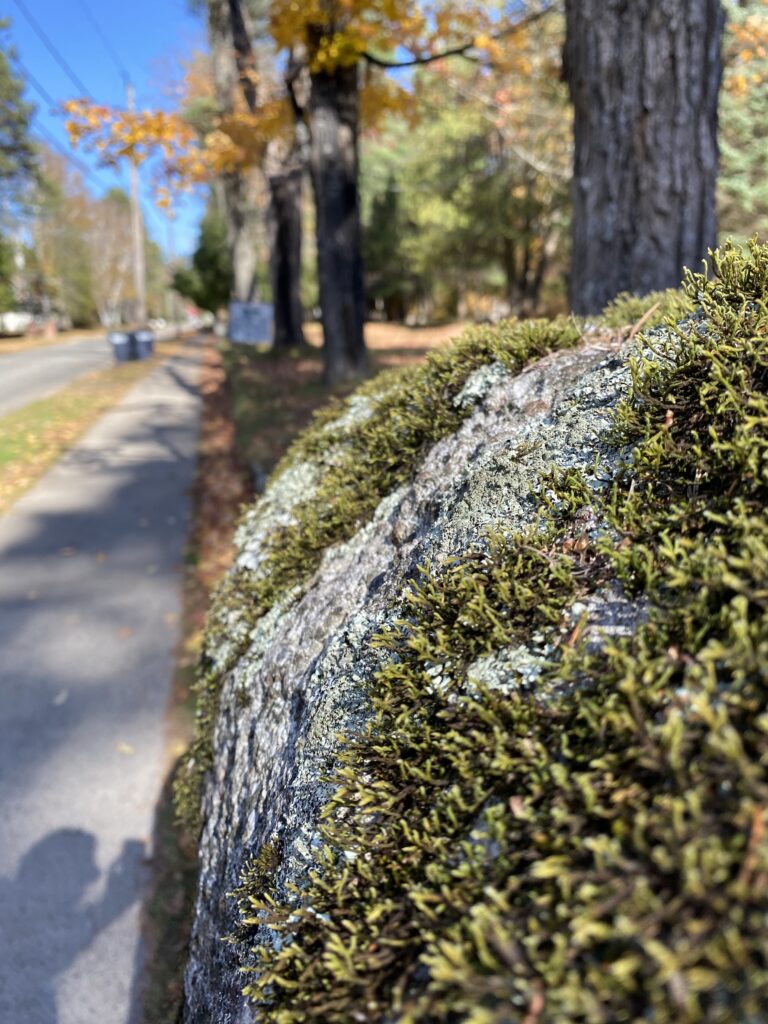We said goodbye the Clementine on December 29, 2021, she was about seventeen years old and had lived with Chessie for years before we met in 2009. She was truly and deeply a member of our family and she will be deeply missed.
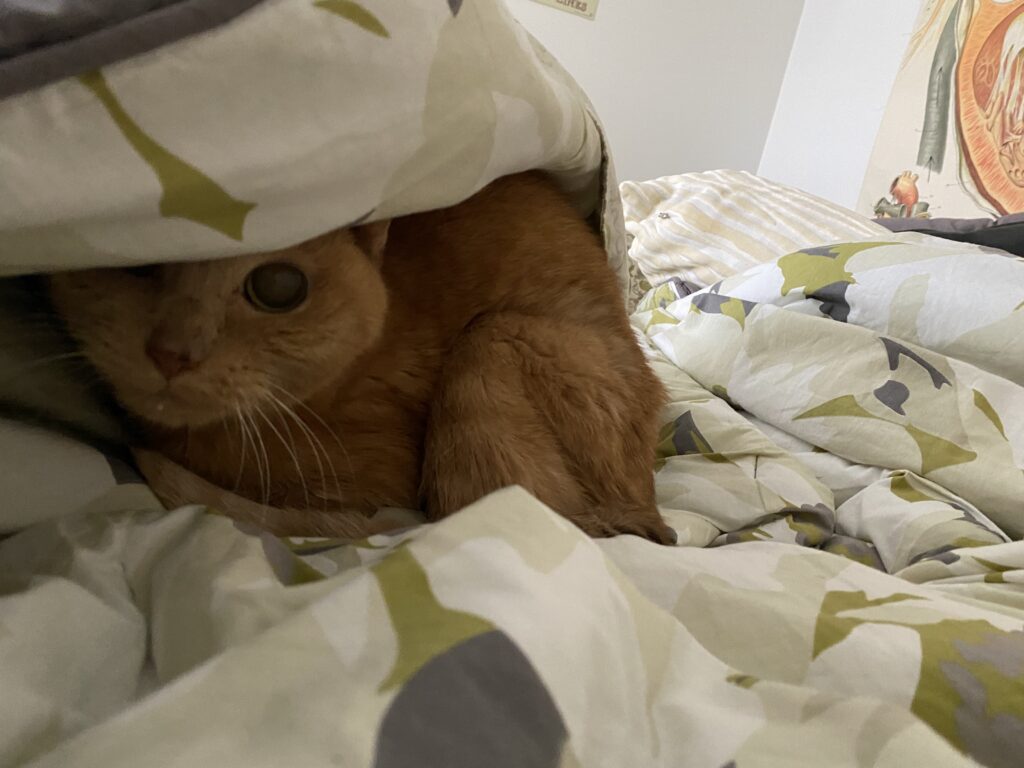
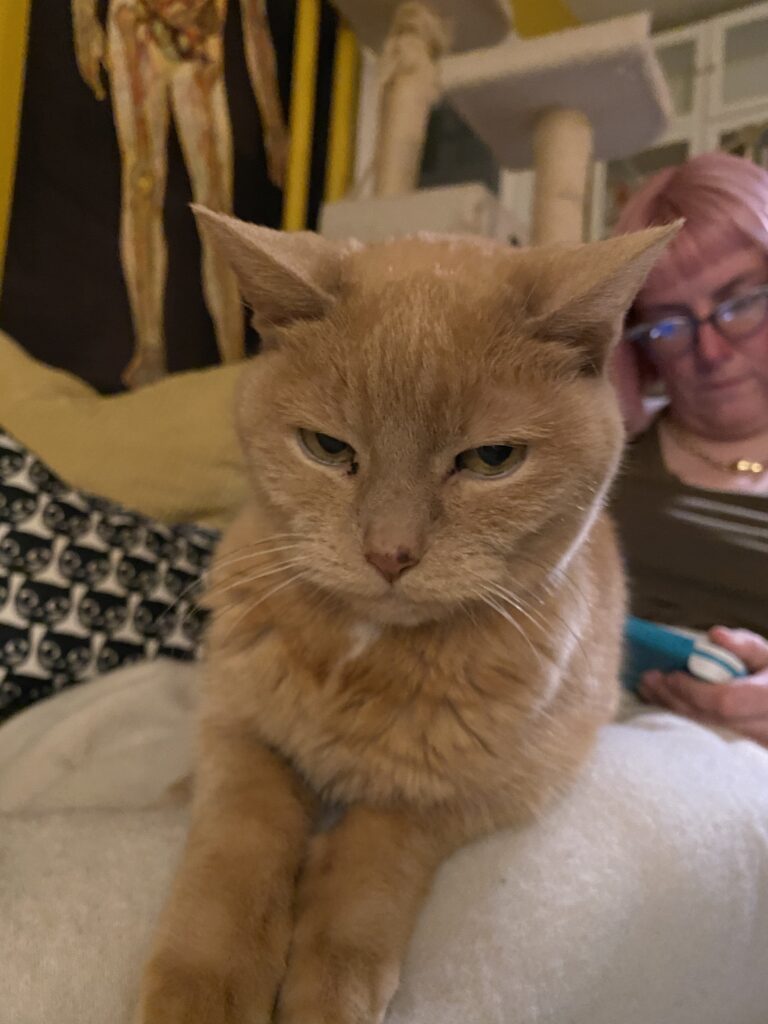
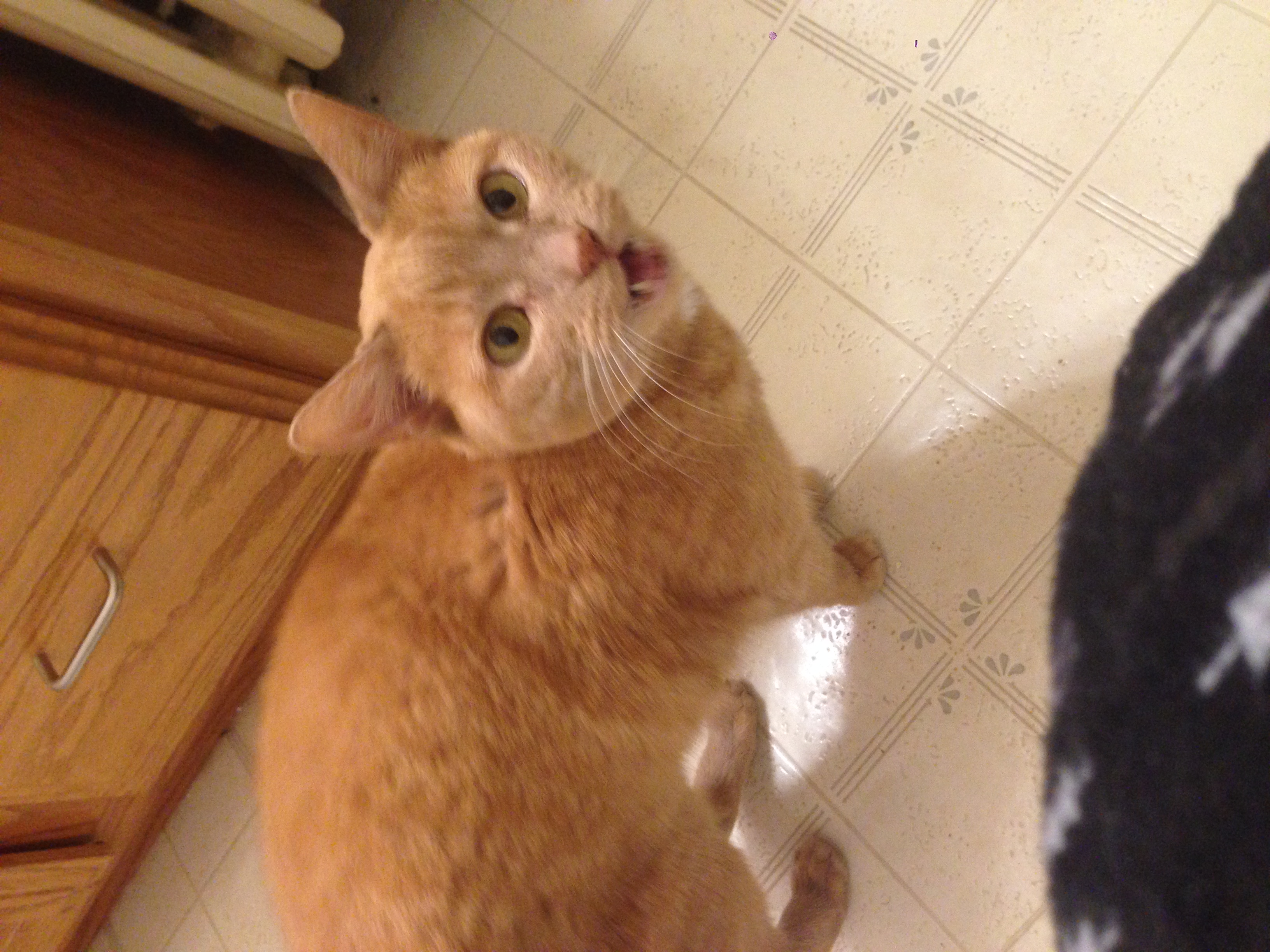
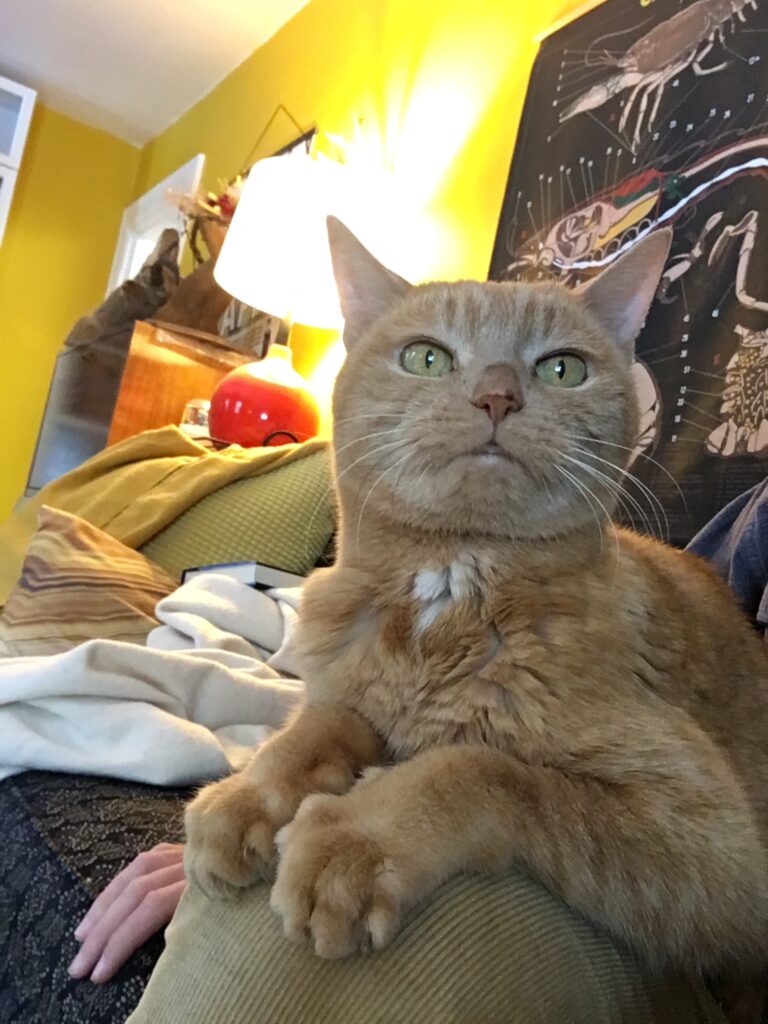
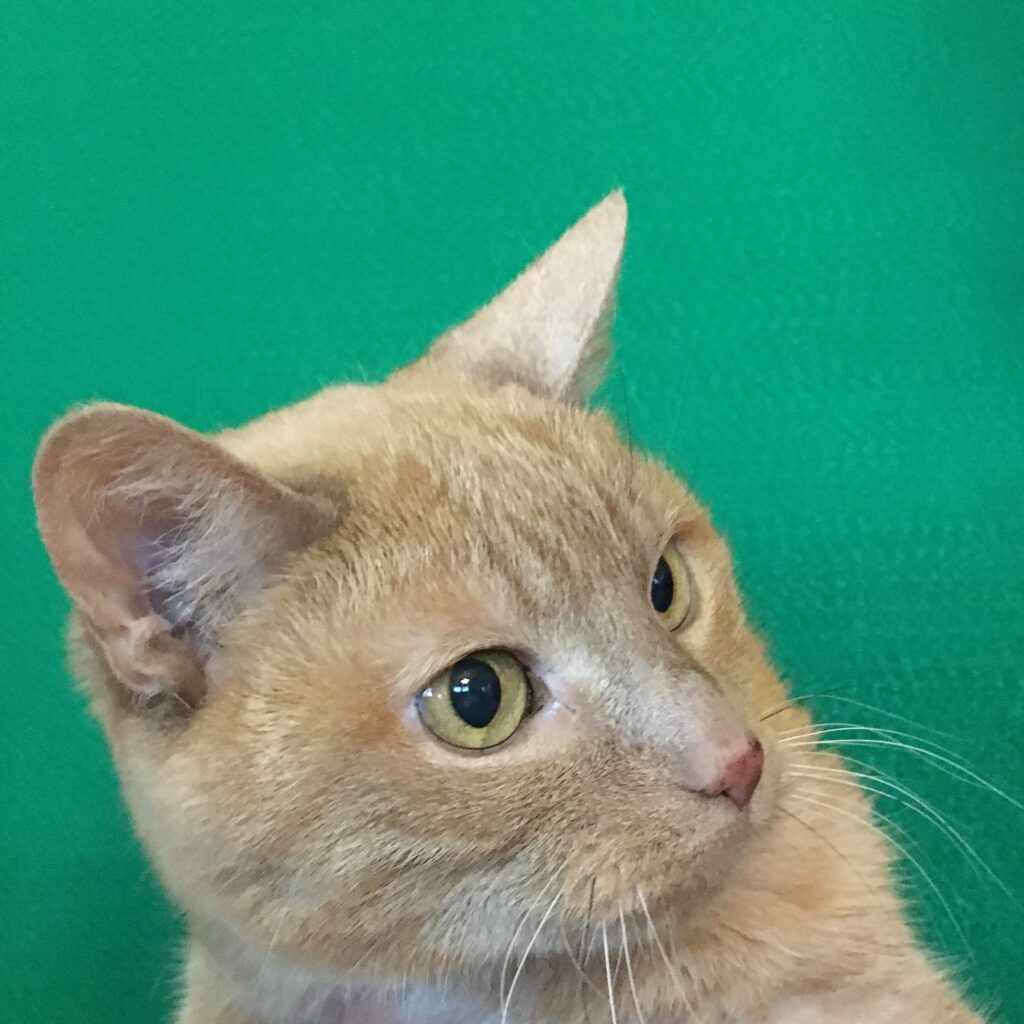
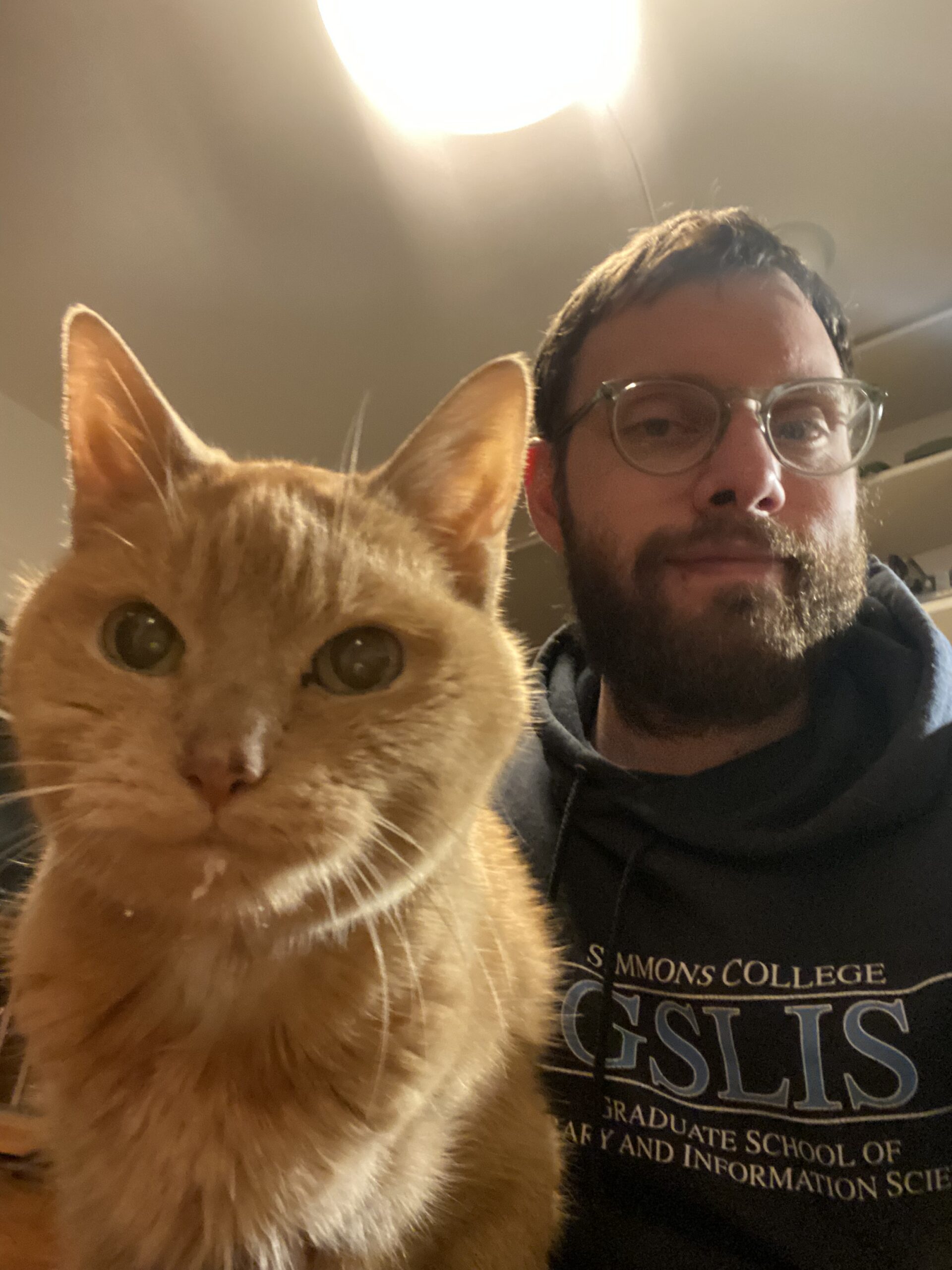
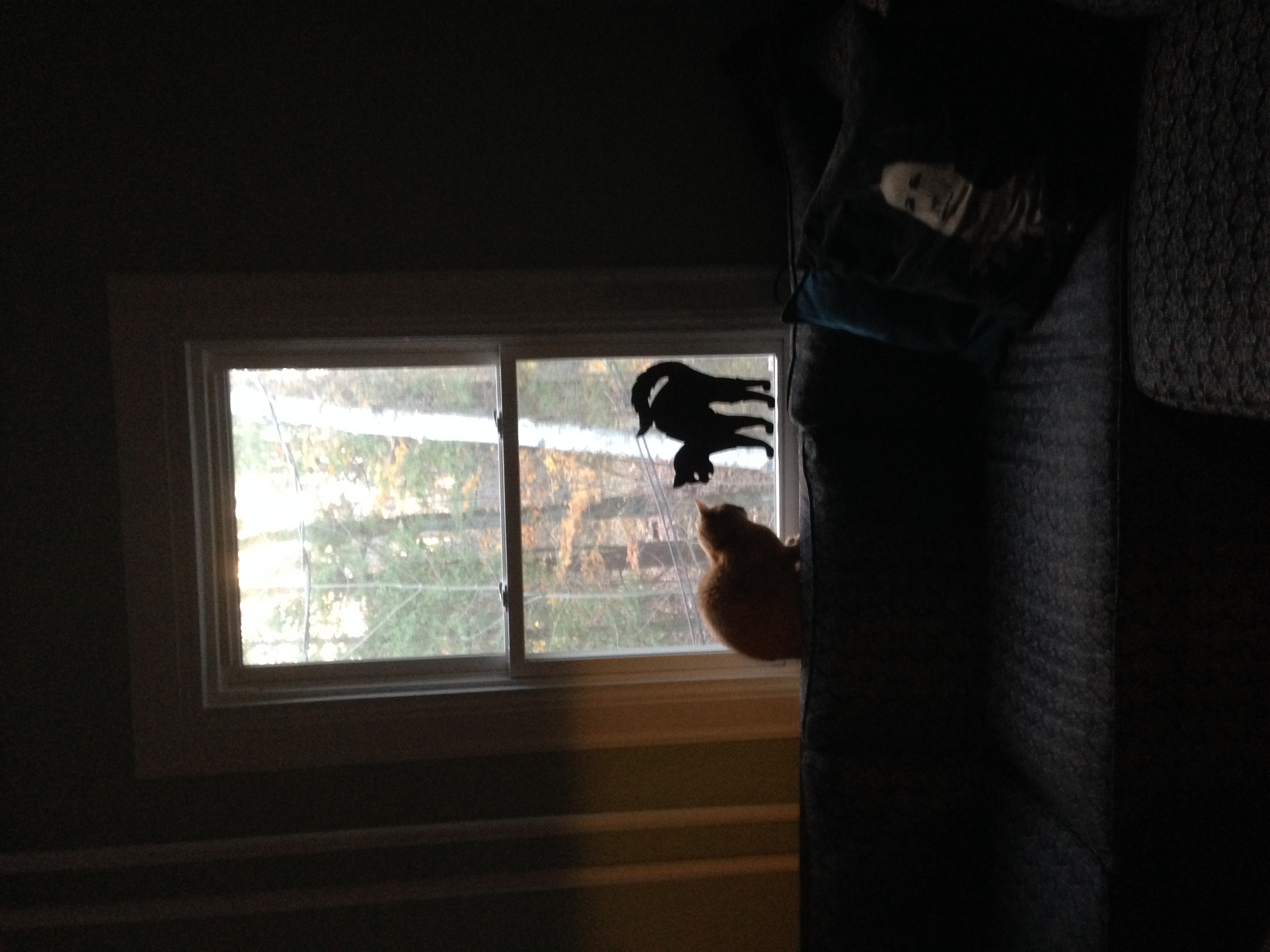
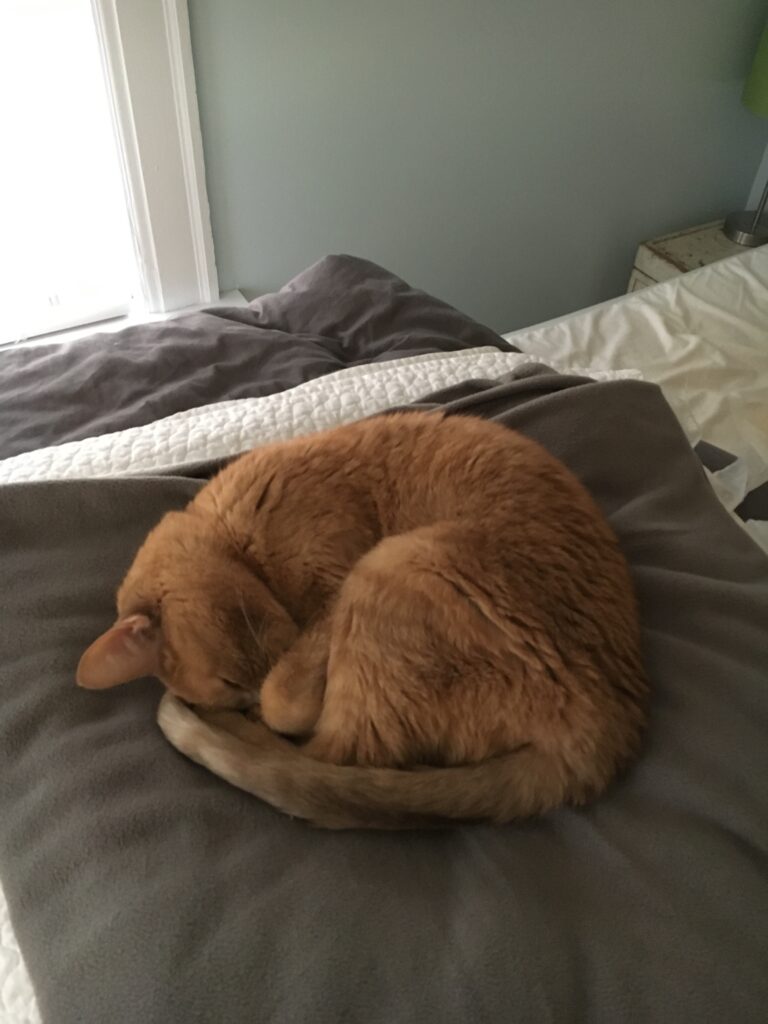
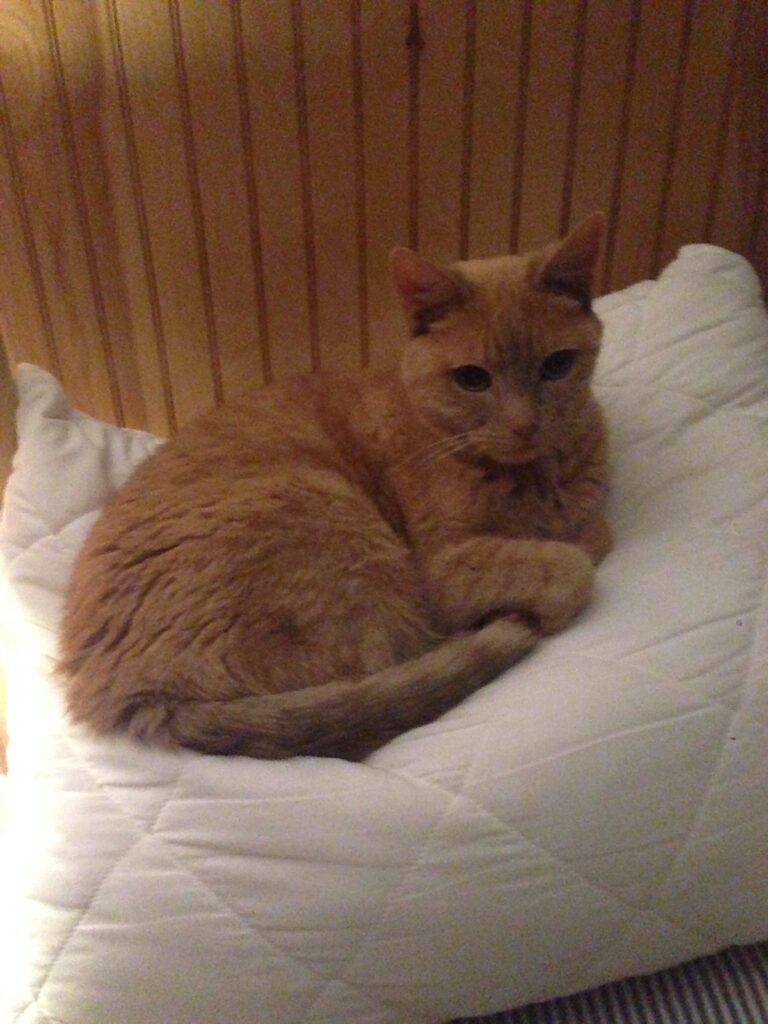
Andrew M. Kelly
We said goodbye the Clementine on December 29, 2021, she was about seventeen years old and had lived with Chessie for years before we met in 2009. She was truly and deeply a member of our family and she will be deeply missed.









I haven’t posted anything here since October, but it’s still a bad time in a great many ways. I’m back to work after completing my sabbatical project and working from home every other week. It’s nice to talk more regularly with my co-workers but it’s bad to be doing anything during a pandemic.
Coming back to regular work after my sabbatical has gotten me thinking about the flexibility I had then that I retain to some degree by working partially from home. Anne Helen Petersen’s Culture Study newsletter had a great piece this weekend about a lot of that. You can read that here.
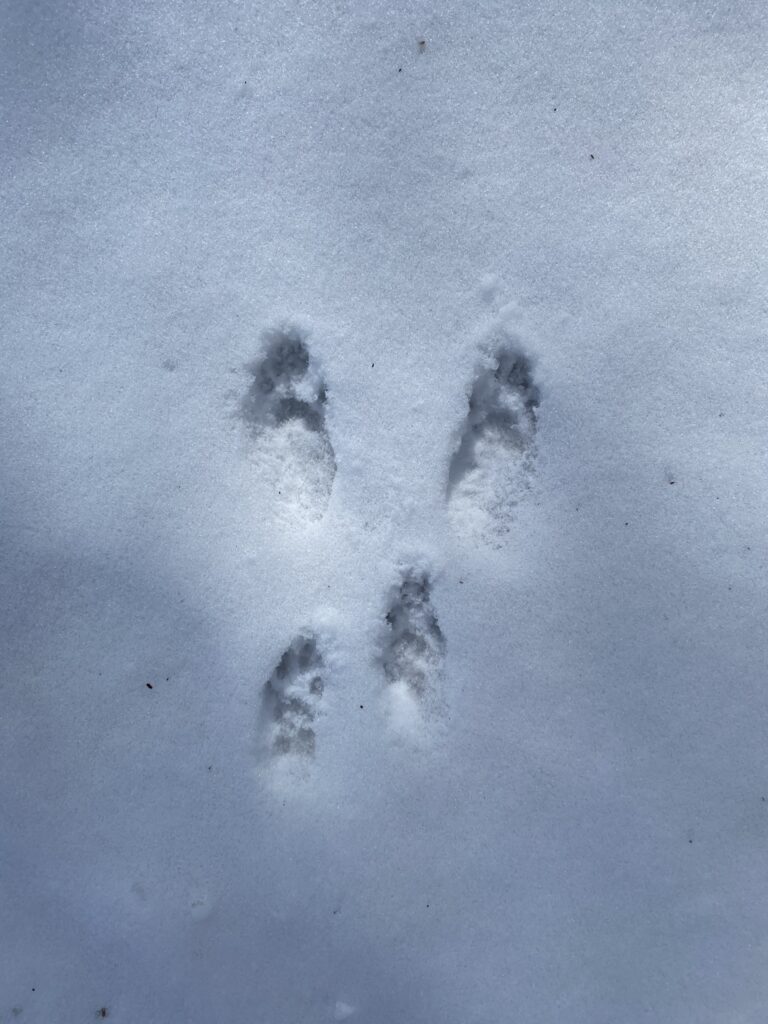
Last week I listened to a two-part series on On Margins, hosted by Craig Mod, interviewing Sam Anderson: part 1 & part 2. One thing I took away from these long talks about writing and loads of other things was a now-defunct column Sam Anderson wrote for the NYTimes magazine:
Sam: […] So the premise was, and this was an idea from Jake Silverstein, the editor-in-chief of The New York Times Magazine, who essentially wanted to solve this problem of not allowing me to spiral off into the formless void and to have, in this case, a weekly deadline for this mini piece. And they’re like 300 words, which is nothing. And it was brilliant because it didn’t allow me to procrastinate and float away. And it was short enough that I didn’t have to really freak out. I can do 300 words. And I had a whole routine. Sam: So the premise of the column was I would just take one sentence from some newish book that had been published in the last six months or so and write a mini essay about whatever. And I could go in any direction I wanted. I could do stylistic analysis of the sentence. I could do free associative prose poetry. And it was super fun. And that was one where I really got a rhythm going. I’d read a book and then I’d make a long list of potential sentences from it. I would type into my computer and I’d print those out. And then I’d pick the sentence and start free writing. And then I’d just produced this little 300 word essay.
from Part 1 of On Margins S2E1 here: https://craigmod.com/onmargins/s02e01/
This got me thinking about trying to do something similar, of setting up some frameworks for myself, deadlines, without which nothing is ever finished and no really consistint work of any kind really gets done. As they say in the episode above, all the ‘writing advice’ is dumb cliches because it is always, really, forever just sit (or stand at your desk) and do the work. If I sit down and read more I can do something like Anderson’s column above, here, put in a quote or a sentence, with links, and include a photo I’ve taken recently.
This poem by Ross Gay is lovely and every time I encounter great poetry or music I think about how I need to make space for more of both those things in my life. […] the engine of his mind […] thank you, dear reader.
It was St. Patrick’s Day, a holiday that as an Irish-American I almost completely faily to understand as much of anything beyond a day, a moment for a inheritance and a heritage and which sometimes boils down to wanting to go back to Ireland, to understand it better and my ancestors there and to watch a few minutes of Riverdance on youtube.
So, I’ll be back again, next Friday at the latest to organize some thoughts here, post some links and write a little essay, maybe, about 300 words, about something I’ve read or seen or heard, to give myself a little focus and a little pressure to put some words together here where someone might read them but which mostly I will write.
I’ve been spending a lot of time alone in my office in the last six months. Alone except for the Internet. I’ve largely managed to get myself away from facebook and twitter since the Pandemic started, and try to cut down on how much I’m on instagram. I’ve managed to taper myself off of facebook and twitter.
The ambient awareness of other people and what they’re up to is the only enjoyable thing about Instagram or those other services. (A phrase I might or might not be borrowing from Jenny Odell‘s How to do Nothing but which I certainly read somewhere.)
I’ve finally bit the bullet and paid for a subscription to Freedom which lets you make a list of webpages to block, on which devices and for how long. I’ve got all websites disabled before 7AM and distracting websites were blocked throughout the day. Having that app serve as a guardrail helps make impossible, most of the time, to resist the urge to open a new tab. I find the moment I get presented with even the most minor of cognitive challenges, I reach for something easier: open twitter, read an article, look at the news.
I am of course trying not to read too much news: mounting death tolls, presidential polling numbers, a death-cult for a federal government do not make for relaxing reading. The week I’ve let myself look at too much news and have spiraled away from doing the work I feel I should be doing or the work I am obligated by my job to do.
I’m not necessarily looking to shift all my attention away from my computer, there’s still a lot to be gained by being here online, lots to be learned and lots of interesting work to do. I’ve been learning a lot of python the last few months.
Good things to put into my head:
Finally, of course, it’s not just what you put into your head but how you handle what is in there and what you do with and about it. This is often difficult, if I’m managing what’s going into my head badly, I’m less likely to be able to effectively work with the stuff I don’t want in there.
As I worked through my sabbatical, I was writing daily logs of work notes in Notion and documenting what I was learning about programming as I went in a sort of personal wiki as a github pages repository & site here. Both these things are useful, especially as a way to put a pin in what I had done and what I’ve learned during a given day. Perspective is helpful and even a few minutes spent looking backward over the past few hours was for me a great way to be appreciative of the day and how I’d used it. This is a habit worth making and getting back into as I return to a semi-normal schedule.
Endnote: Like so many things, this languished nearly-finished for a few months in the Drafts folder in WordPress, so to speak. So, while I’m publishing this in March 2021, a lot of it was written back in November.
In what is surely an over-used metaphor, it occurred to me today that my writing is similar in a lot of ways to my cooking.
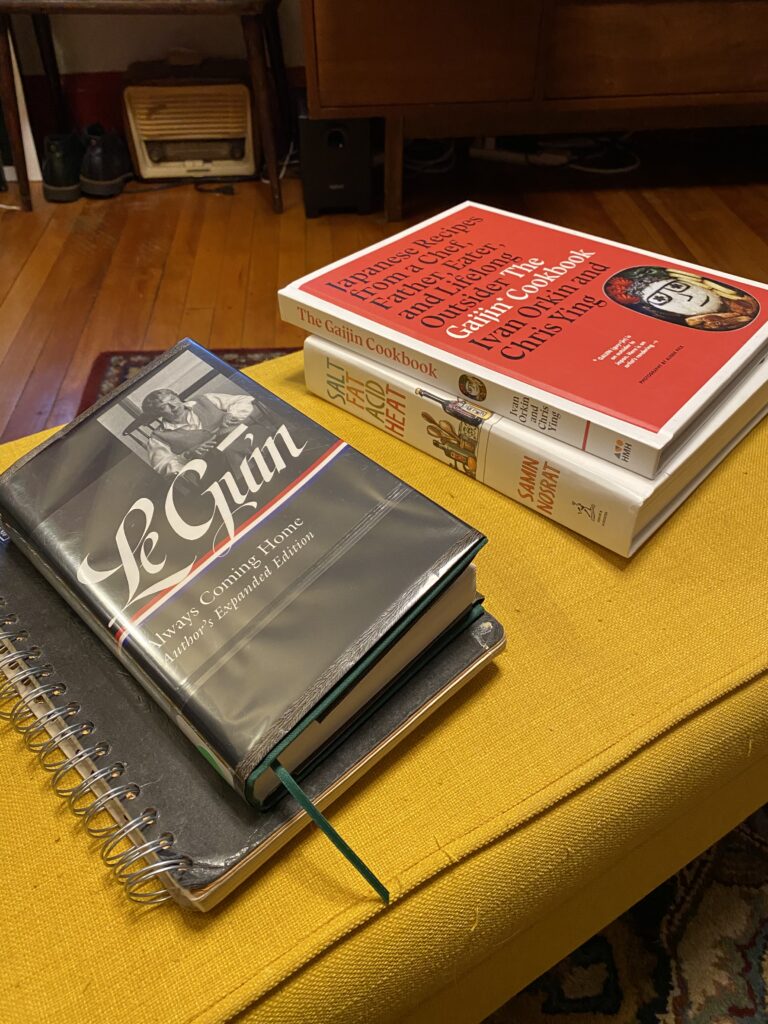
Every dish you make is building on the ones you’ve made before. Each egg you fry and each paragraph you write builds on all the past eggs and paragraphs. You build skill each time and you get the pleasure of having done the thing. You can see how this egg was different than the last, how you need a little more butter and a lower flame on the stove. You can read a paragraph you wrote and see how its sentences work together, or don’t.
Think of writing as something done for a small audience, sometimes of one or two. Making a dish you really want to eat, the story you really want to read. The dish may not come out as well in every respect as you would hope and the story will almost never live up to the idea of it you had in your head when you began. The story will have become something surprising and you’ll discover over the years what constitutes the perfect scrambled egg and the right setting on your toaster.
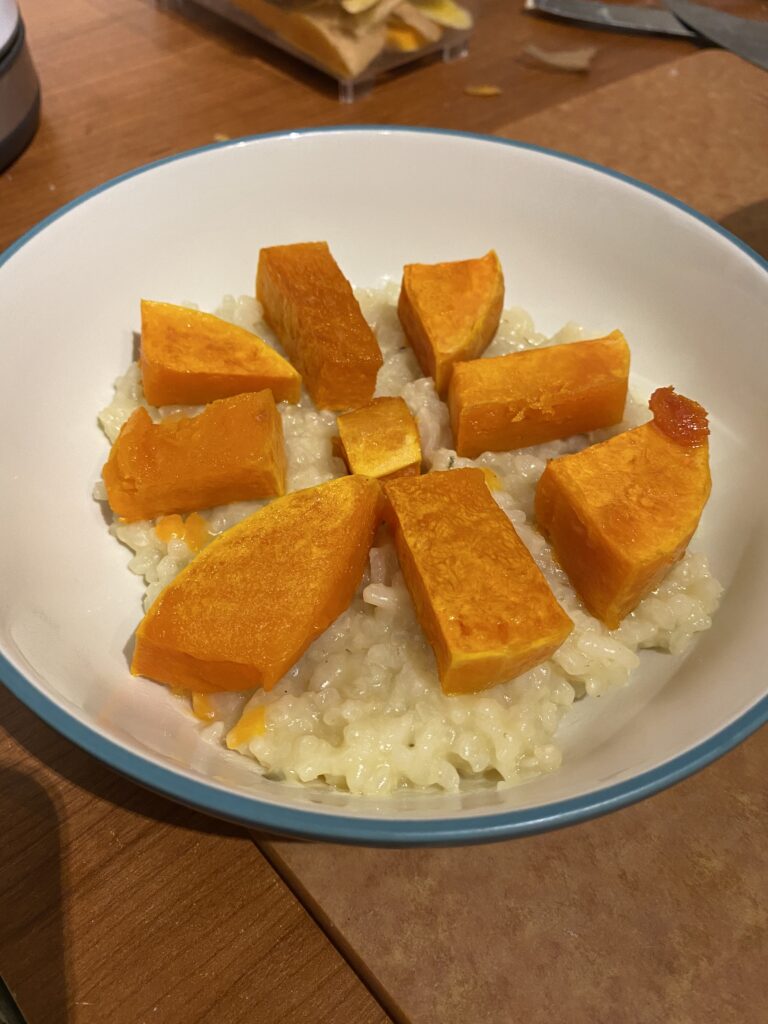
Reading improves both writing and cooking, both spring from the same place of giving yourself the shared experience of creating something. Being a cook and being a writer are both matters of eternal practice and continuing pleasure as well as being things you can share by degrees with others. Most cooks don’t have restaurants and most writers don’t have publishing contracts.
Try to make writing like eating and cooking: daily, essential, and enjoyable even when the reality doesn’t meet your expectations.

I’ve been walking after lunch most days and I’ve started taking the same photograph each time, at the spot where there’s a good vista. It makes a nice place to turn around.
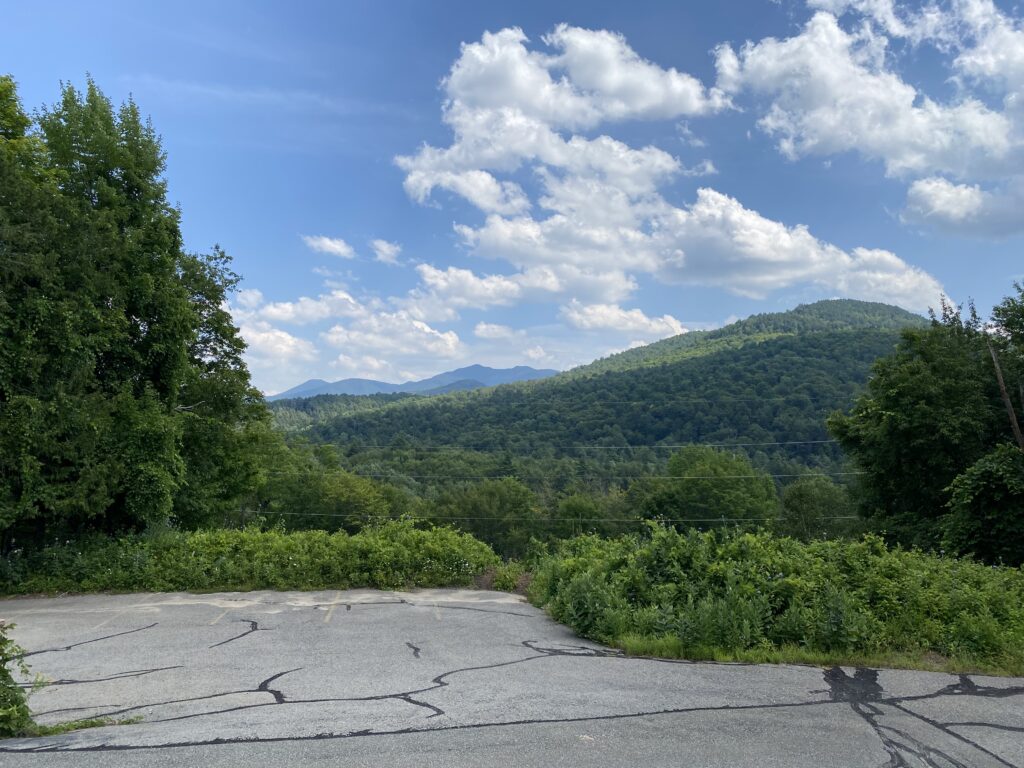
I’ve been doing this walk, almost every day for a couple of months. It’s just under two miles round trip on the straight flat road of my neighborhood.
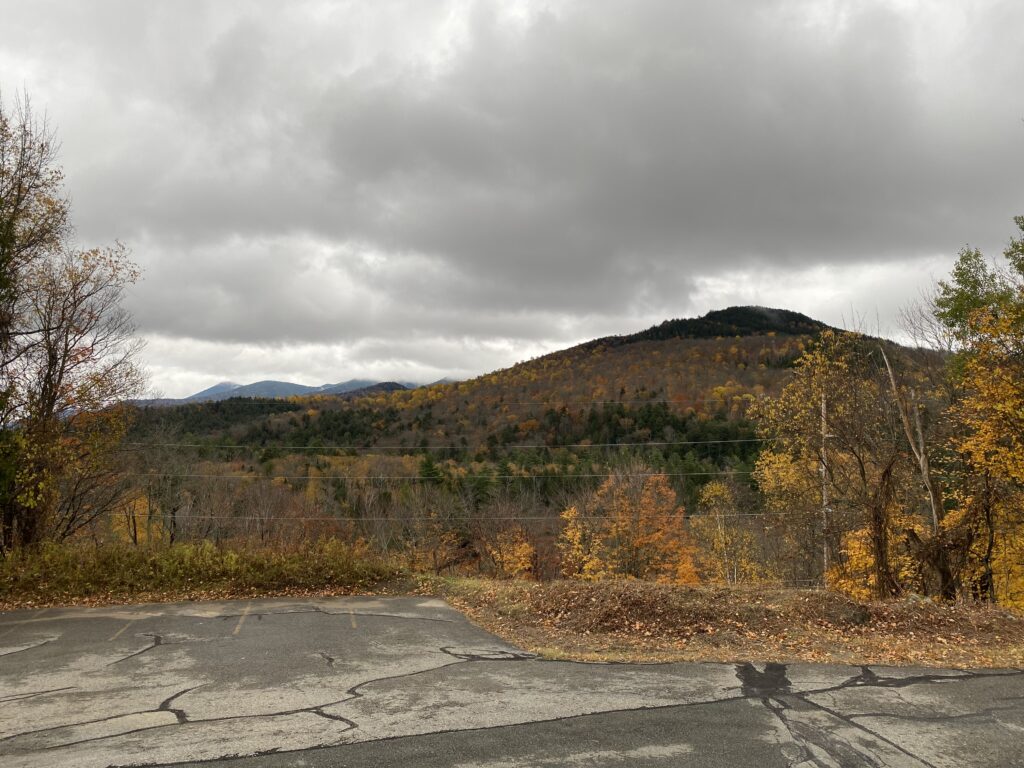
I’ve taken a lot more than these two photographs but they make for a striking contrast. I don’t quite have a strained metaphor for my own life the last couple of months or in the last year. A lot has changed and a lot hasn’t.
I’m on sabbatical and I’m learning and working and moving through the project I outlined both faster and slower than I’d hoped. Overall, I’d say I’m on schedule and generally enjoying the time I have to work at home. I always struggle with managing that time though, even more acutely since I am the only one accountable for it. (And I want to look back on the span of months, weeks, and days from mid-August to January with a sense of having done a lot of work, well.) It always feels I *could* or _should_ be doing more…but it’s also a traumatic, stressful, deeply worrying time we are all living through. Being kind to myself as much as I can (and to others) is perhaps in any time and especially now, the best way to survive this year and those to follow it.
